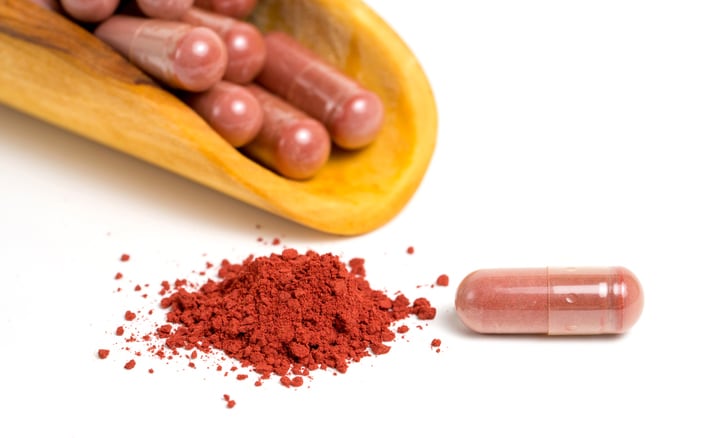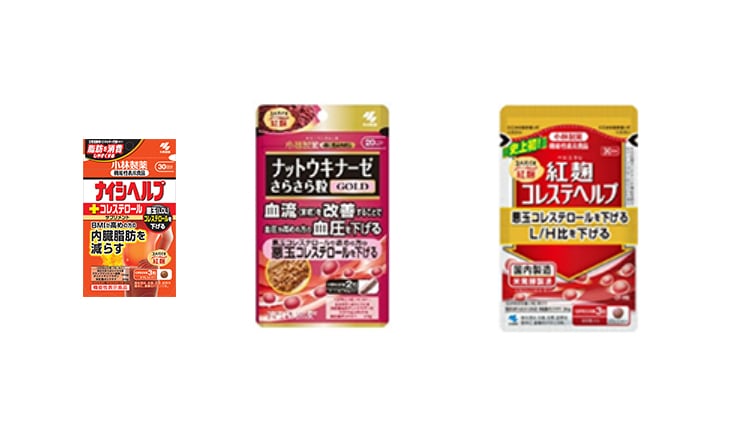The agency sent out a questionnaire from March 28 to about 1,700 businesses selling FFCs to confirm whether there is any information pertaining to their products and health hazards, and whether appropriate reporting has been done if was any.
“Approximately two months have passed from the time the damage was discovered until the decision was made to suspend sales. We recognize that this is a serious incident that raises doubts about the safety of Foods with Function Claims,” said the agency’s commissioner Arai Yutaka.
A search on CAA database showed records of 8,157 FFC products since the system was introduced in 2015 to this year.
Kobayashi Pharmaceutical landed into hot soup over the past week as its red yeast rice supplement for cholesterol lowering was found to be linked with complaints of kidney disease , with 157 cases hospitalised as of March 31. Five deaths suspected to be linked to the products have been reported so far.
Japan Health and Nutrition Food Association (JHNFA) told NutraIngredients-Asia that it had received CAA’s official notice on March 28 regarding the questionnaire. The notice also said that the CAA had sent an official notice directly to all companies which has filed for FFC notification.
Another industry body, Japan Alliance of Health Food Association (JAOHFA) also said that it has received the official notice from the CAA.
Kobayashi Pharmaceutical factory inspection
Responding to queries from NutraIngredients-Asia, Kobayashi Pharmaceutical said that puberulic acid – the ingredient unexpectedly found in its red yeast rice products – has been found in two of its factories.
According to the firm, one of the factories produces red yeast rice raw materials used in the recalled Red Yeast Cholesterol Help products. The other factory manufactures finished products containing the red yeast rice raw materials.
"Detection [of puberulic acid] has been confirmed at a raw material factory that closed in December 2023. The raw material [production] has been transferred to another factory, but it (puberulic acid) has not been detected there," said the firm.
In total, there are three factories manufacturing the recalled products.
Two of the recalled products, Red Yeast Choleste Help(紅麹コレステヘルプ)and Natto Kinase Sarasara GOLD(ナットウキナーゼさらさら粒GOLD), are made at a partner company. Another recalled product, Naishi Help + Cholesterol(ナイシヘルプ+コレステロール), is manufactured at a group factory.
The company added that investigation into the cause was being led by the Ministry of Health, Labour and Welfare, and the company would continue to provide the necessary information in order to contribute to the prompt identification of the cause.
Retaining consumer trust
Asked how the ongoing saga has affected consumer trust in FFC, JHNFA said that as details of the incident remained unknown, it would take appropriate measures and endeavour to provide consumers with proper information once the cause was established.
Masafumi Hashimoto, chair of JAOHFA, on the other hand, said the association recognized that the incident had “a significant impact on users’ confidence” in the safety of FFC products.
“As an industry organisation, we take the fact that a health hazard has occurred very seriously, and we offer our sympathies to those who have been affected and our deepest condolences to those who have lost their lives.
“JAOHFA will continue to raise awareness about ‘ensuring safety’ and asks all businesses involved in the manufacture and sale of health food products to once again confirm that the quality and safety of their products are sufficient.”
He pointed out that for the FFC system to develop soundly, the three pillars of efficacy, quality, and safety needed to be secured.
In the same vein, Kirin, one of the major FFC producers, said that it recognized that consumers have become more concerned about FFCs due to the ongoing incident, and it would monitor future trends closely.
“We recognize that consumers are becoming increasingly concerned about the functional food market as a whole as a result of the beni-koji incident, and we will continue to closely monitor future trends,” Tatsuya Takada, manager of Corporate Communication Department at Kirin Holdings said.
“We believe that FFCs that are safe and backed by solid evidence, are useful for improving the health of our customers. The Kirin Group's FFCs, including Lactococcus lactis strain Plasma, are safe are backed by solid evidence. We have confirmed through our suppliers that the raw materials we use meet the laws related to food safety and quality.
“We hope that consumers will continue to use our products with peace of mind by continuing to steadily communicate the safety and functionality of our products,” he added.
JHNFA believes that consumer confidence in FFC could be strengthen through proactive information disclosure by companies.
As such, it has been operating a database detailing post-notification quality testing results of FFCs since 2019.
“In its notification guidelines, the CAA recommends the disclosure of information regarding the status of post-notification analysis. Based on this, our association has operated an information database of FFC post-notification quality testing since 2019, to promote efforts of information disclosure by companies, not limited to our members.
“We believe that consumer confidence in FFC be strengthen through proactive information disclosure by companies, which will lead to further development of this system,” said Mitsuru Aoyama, managing director and secretary general at JHNFA.
He added that the association was a GMP certification body for health foods which has been promoting companies to self-inspect their product safety and in obtaining GMP certification for their products.
Hashimoto added that the JAOHFA ran sub-committees that oversee manufacturing, quality, and safety, as well as the promotion of GMP.
“[We] will continue to discuss measures to prevent the recurrence of such an incident from happening again,” he said.





